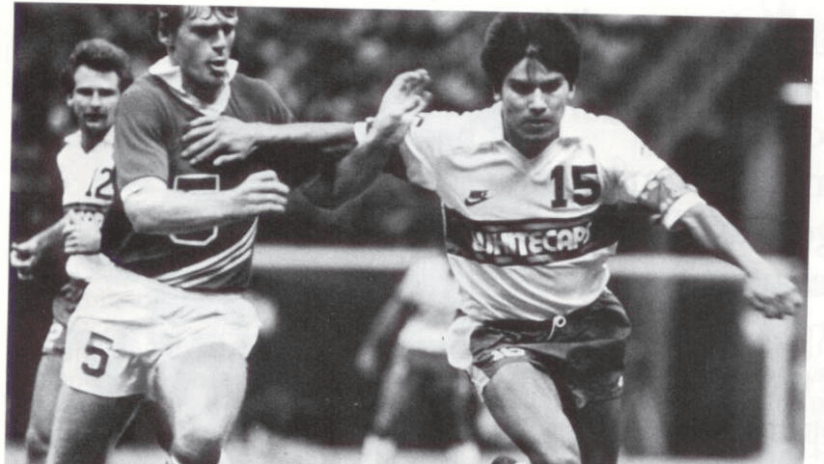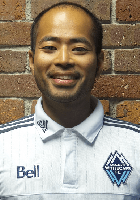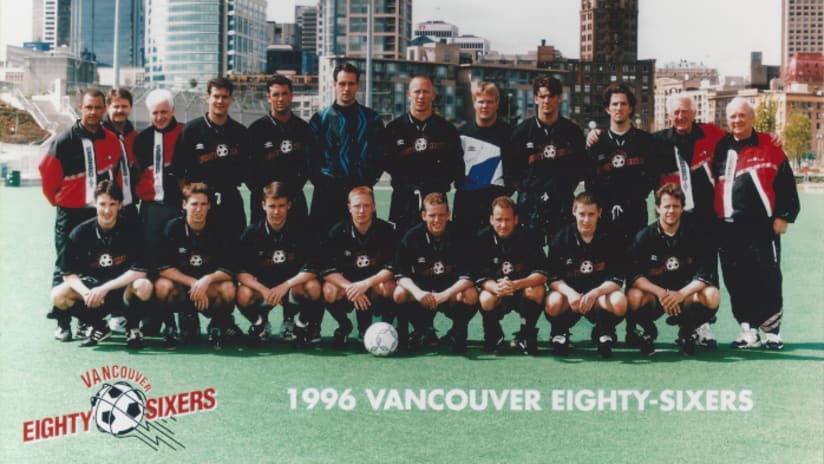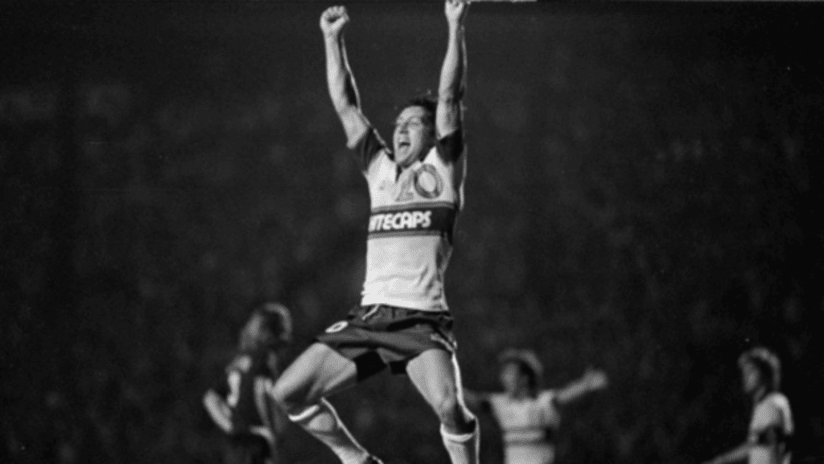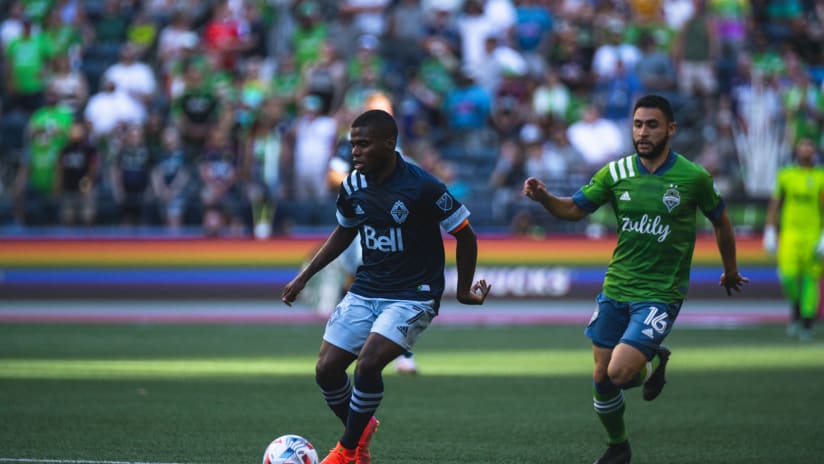As part of the club's celebration of National Indigenous Peoples Day, whitecapsfc.com caught up with Terry Felix, who broke ground in 1983 when he became the first Indigenous person to play professional soccer in North America when he joined the Vancouver Whitecaps.
A member of the Sts'Ailes, Felix currently resides in the Coast Salish First Nation community on the west bank of the Harrison River between Mission and Harrison Hot Springs.
He talks about his Whitecaps days, the active role he plays in his community and his family today, and a lesson each Canadian must remind themselves as we celebrate National Indigenous Peoples Day this weekend.
What keeps you busy nowadays?
Terry Felix: I've been working in corrections now for 12 years. I help the Indigenous inmates by counselling them. I work at a minimum security prison near the Harrison area and I take them out on work passes three days a week. I meet with the warden and I met with our chief and council and we discuss what projects that could help our community. We do a lot of work for the elders - firewood in the winter time, yard work in the summer time. We're building a gazebo for the elders garden, garden boxes. Most of our work is geared towards our elders.
Seems like this benefits two marginalized groups of the community at the same time.
TF: A lot of these guys in prison, they're like foster kids. They've never had a family so we connect them with our elders. Basically give them guidance when they're out. And the other part of it is they are minimum security prisoners so they're on their way out of the system. We're integrating them into the community by introducing them to people outside of the prison.
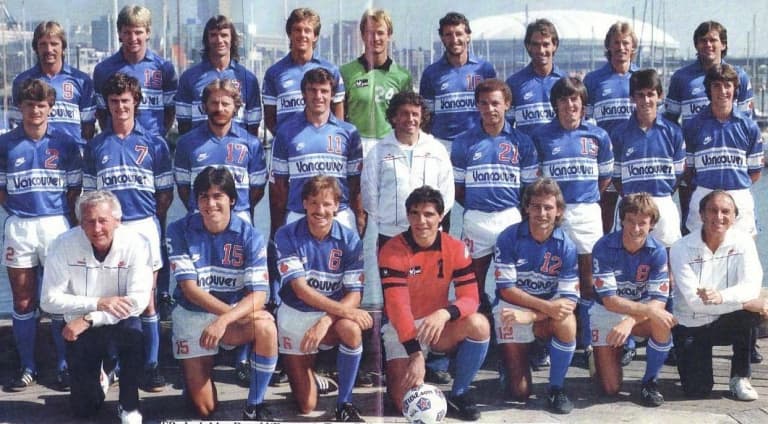
Do they know that you used to play professional soccer?
TF: I don't tell them but they do find out. They come up to me one day and asks, "why didn't you tell us you played soccer?" They find out and they're just really happy about that.
What does it mean to you knowing you blazed a trail when you became the first Indigenous person to play soccer at the highest level in North America?
TF: Being the first one didn't really mean much that way, even when I was playing. You're 22 and you're playing soccer and it's a lot of fun and playing with all the big names and you're getting paid to do it. It wasn't until I quit maybe about 10 or 15 years later that it started sinking in when kids' groups were asking me to meet them and talk to them. The adults started coming up to me and saying what a big deal it was for them and their community. So at the time, it didn't mean much, but it just it means more over the years. That's really a big deal with a lot of our Natives.
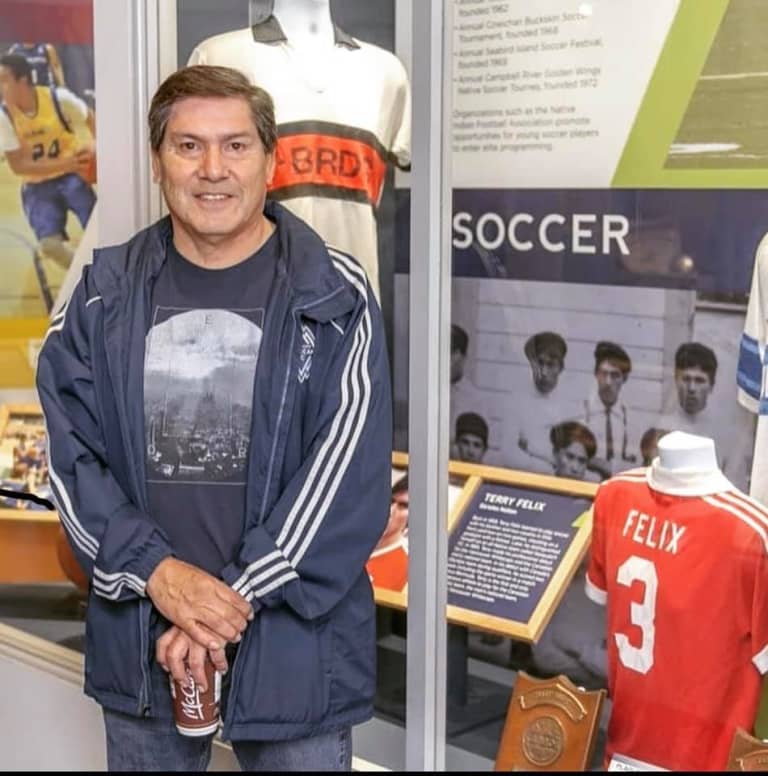
Do you see more Indigenous people forging a career in soccer now?
TF: There's a few of our people that are getting connected to the higher level coaches. My son has coached in the North American Indigenous Games, and they won the Gold medal in the last Games. They're very content connected with all the good coaches.
How was it getting your own career started, having to leave your community and move out to Vancouver?
TF: It was a lot different back then because it was a smaller population. There might have been a few hundred people here in my community. Vancouver, you know, the fans there referred to as The Village. It was both small back then, whereas now, Vancouver has become such a big city. Vancouver was really a smaller place then, but it was still scary. You leave your little community and you don't know anybody. There is there no other Natives playing ball.
How different was it from playing back in your community?
TF: It was my first structured soccer practice. Back in my community, we've got our soccer field and we kick the ball around, shoot on net, and scrimmage, and that was our training. And then I went to the Whitecaps youth team and everything was structured - heading, passing, shooting, positional play. So on my 21st birthday was the first structured soccer practice I had.
Anything that sticks out from the 1983 season with the Whitecaps?
TF: When we played the Cosmos, that was the most fun I had in a soccer game, because it was my first game here and I assisted on David Cross' winner. We beat them 2-0 and I assisted on the first goal. I gave him a breakaway, and he slammed the ball into the bottom corner. And I was one-on-one with the goalie in the second half and the goalkeeper made a really good save. I still think about that shot. If I put it one inch higher it would've went in. He just got his toe on it and it went over the net.
You were also part of the national team then.
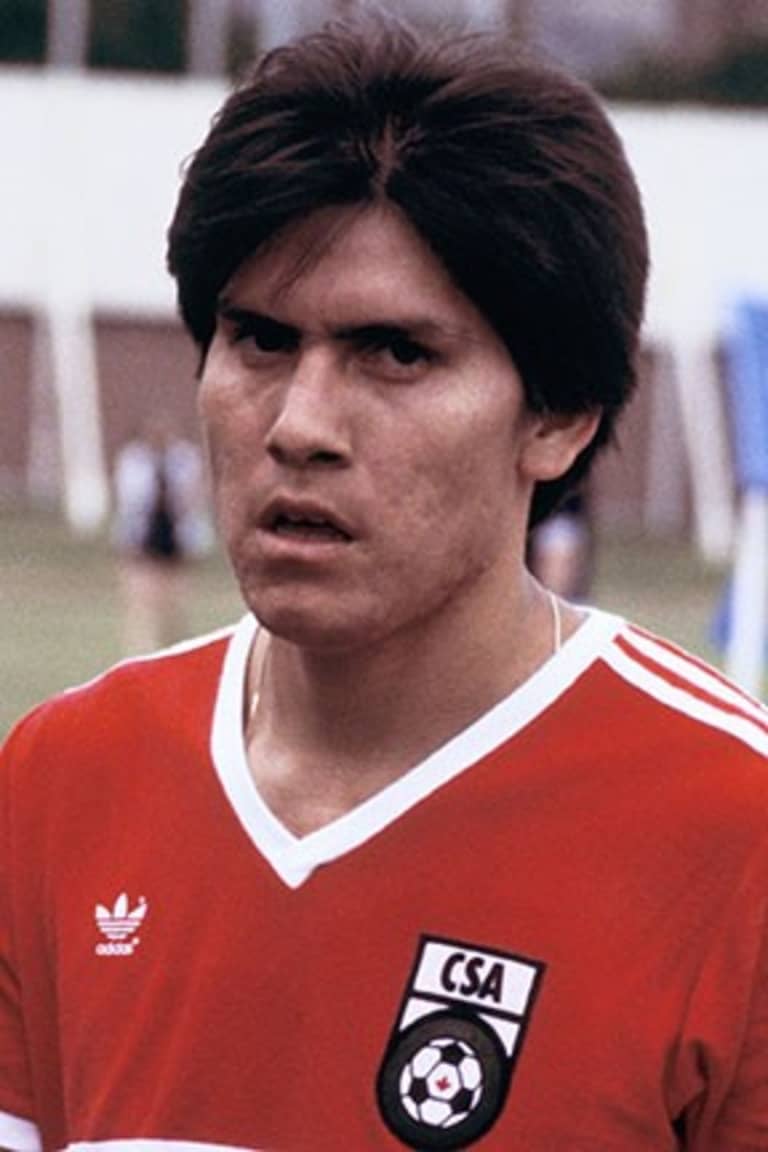
TF: I was training with the Olympic team that spring. We were out in Esquimalt in Victoria, and we were getting ready to play Mexico to see who was moving towards the '84 Olympics. I stepped on a little tiny hole, no more than no bigger than a quarter, and I tore ligaments in my knee. That was the end of my career with the national team and the Whitecaps.
It was an end to one chapter of your life. What unfolded next?
TF: I phoned my wife and I told her I was injured and I'm going home. And then she said, "I got some news too. I'm pregnant." Everything happened in just five minutes. It was scary because you're so young. I moved home and my daughter was born. I decided I have to take care of my daughter and my wife. I just couldn't end. I decided at 24, I was going to quit soccer. My son was born in '86 and I just had to work and support the three of them. Over the years, I've got five sons, a daughter, and a stepdaughter.
You mentioned your son now coaches soccer. How else has the sport lived on in your family?
TF: So my son became a really good coach, he brought the BC girls to the North American Indigenous Games and they got the gold. He's a really smart coach, he can see talent and he can coach, which I could never do. And then, my granddaughter has played at the highest level in Vancouver since she was seven years old. My son is her personal coach right now. Scarlett has played with the gold team and Fusion.
(Note: Scarlett Felix also participates in the Hope and Health community camps and is a scholarship recipient to attend Rise and Shine Captains camps this summer. Click here to learn more about Hope and Health.)
What's the most important lesson you'd like to impart, especially as we celebrate National Indigenous Peoples Day this weekend?
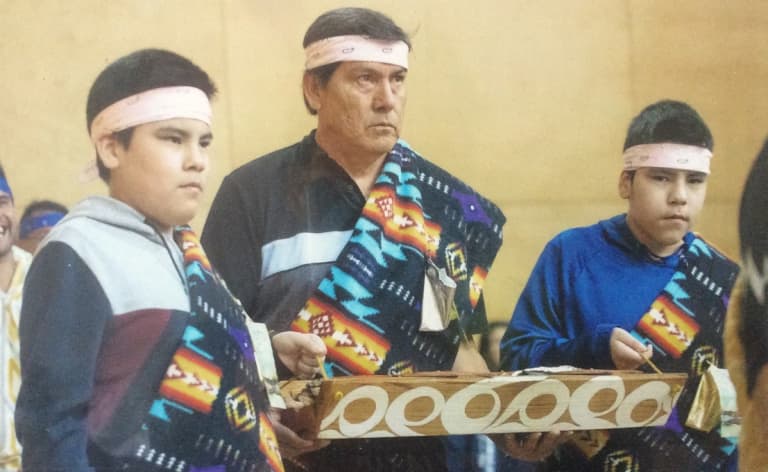
TF: Just to be respectful of people that that you meet, whatever colour or race, or where they're from or even their social status, rich or poor. That's what I teach my own boys and my own kids. Just be respectful because we all got our struggle, we all get up every day and go to work and pay our bills and a lot of people have a hard time. Be good to everybody you meet. That makes me proud to see my kids, how they treat everybody that way.
Find out how you can take part in the celebration of National Indigenous Peoples Day by clicking here.

